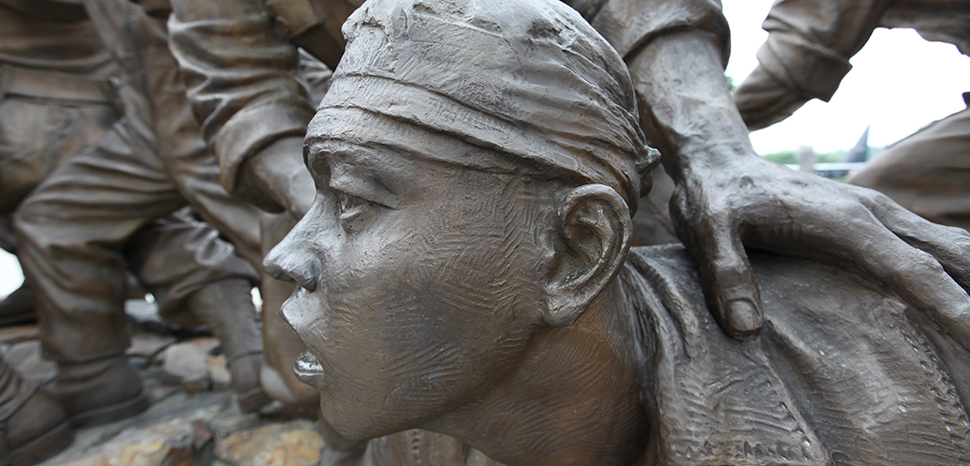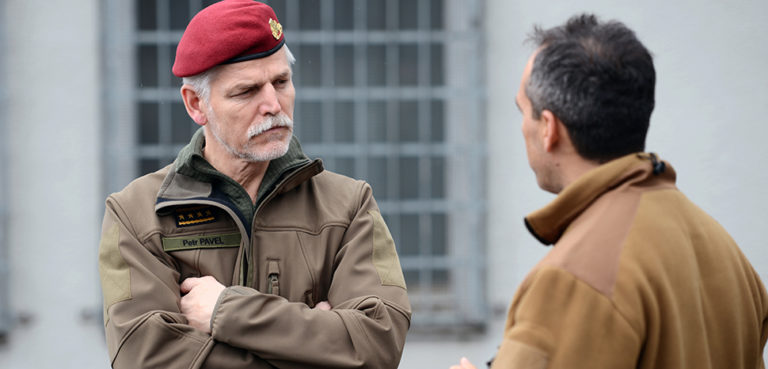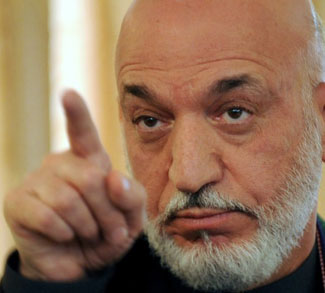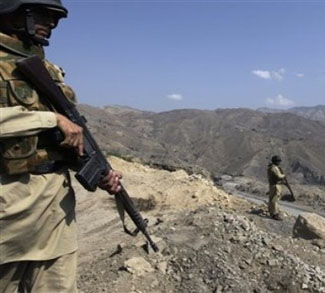The most successful form of warfare is to strike at the enemy’s strategy. This is the main thesis of the famous treatise “The Art of War.” It should be added here that the most successful weapon in this case is wisdom.
History teaches us that the formula for ending a war almost always has one important component: promoting peace, as a method to deliver wisdom for the conflict resolution in a direct or indirect ways. History shows that promoting peace, even bordering on coercion, has been used successfully by large and experienced countries. Let us recall the Korean War with reference to Dr. Carter Malkasian and his book “The Korean War 1950-1953.” Already at the end of the negotiations, the United States felt resistance from the South Korean population to end the war, because the South Koreans did not want Korea to be divided into two parts – North and South, and were also against the deployment of the Chinese army in North Korea. There were protests in South Korea, but the United States and its partners resorted to peace enforcement by offering South Korea good postwar security guarantees, assistance in the development of the Korean army, and leaving their 8th Army, which had participated in the war, in South Korea. The coercion to peace worked – the war ended in two months and has never resumed.
What is happening now in the world and in Ukraine looks like coercion to peace. The postponement of aid because of the debate in the US Congress, the postponement of aid from the EU, the reduction of arms and ammunition supplies starting in late summer, the decision of the European Council to start negotiations on Ukraine’s accession to the EU, but subject to certain conditions until March of this year – all of this, to one degree or another, is evidence of coercion to peace in Ukraine by partner countries. It is likely that the delayed US and EU assistance is intended to fill in for post-war security guarantees for Ukraine, or the West’s first contribution to Ukraine’s post-war security, and the EU wants to start accession talks with Ukraine, where the war has already ended, because the negotiation process looks more predictable to Europeans, as does the result: Ukraine’s accession to the EU. NATO’s perspective is realistic, because without Ukraine in NATO, there will be no security in Europe, and Russia will be constantly swayed from the outside. Ukraine should probably receive an invitation to join NATO as an EU member.
For the West, Ukraine has already won, having defended the main objective – state sovereignty and independence, as Finland did in the days of Mannerheim, having defended its right to exist and define itself in the war against the huge USSR. The Finns have never considered this a defeat, nor has any Western partner. It was their victory, securely engraved in history.
In his press conference with President Zelensky on December 12, 2023 President Biden made one statement that Ukraine has already won a great victory in the war by defeating the initial Russian plan to subjugate the whole of the country.
The experience of ending the war in Finland and Korea, as well as the German experience of managing the situation in the postwar period, with West Germany joining NATO and the final stage of peaceful reunification of Germany, should be useful to Western countries in ending the Ukraine war.
A recent CNN article by Matthew Schmidt provides a meaningful analysis of the war’s developments, drawing on the wisdom of history. Here is one of the theses of what such a wise decision might look like:
“The second option — one less dependent on immediate deliveries of high-tech weapons, followed by a quick and drastic battlefield success — is for Zelensky to freeze the fighting and play a long-term strategy to get his territory back over time. This is a back-up plan if the first fails to happen or fails to work. One might call it the “Berlin option.”
Over the 32 years of independence, the Ukrainian government has made many mistakes. This includes the long-standing pursuit of the idea of “neutrality” in relations between Western countries and Russia, which left Ukraine as a buffer zone and tempted Russia to commit aggression. A superficial attitude to the development of the country’s defense capabilities, which led to the sale of a large number of conventional weapons during the first two decades of Ukraine’s independence. A very long and uncertain process of shaping public opinion on joining NATO, which changed dramatically in favor of joining NATO only as a result of Russia’s aggression in 2014. Ukraine has recognized all these mistakes. Russia’s aggression in 2022 is the latest tragic lesson that Ukraine has learned.
At the same time, Western countries should frankly recognize their mistakes as well. For example, the uncompromising process carried out by the United States in the 1990s, which left Ukraine without a deterrent – nuclear weapons.
Peter Hilpold in his recent paper gave an excellent description of one of this historical episode: “To read today Professor Mearsheimer’s analysis of ‘The Case for a Ukrainian Nuclear Deterrent,’ published nearly 30 years ago, might leave a somewhat ghastly impression: How is it possible that a political analyst, shortly after Ukraine had become independent, developed such an accurate prediction of the events that would unfold, slowly but inevitably, in the following decades? A development that would end up in the disastrous Russian aggression against Ukraine? At the center of Professor Mearsheimer’s prophecy stood the prescience that abandoning her nuclear deterrent capacity would expose Ukraine, sooner or later, to an invasion by her ancient nemesis Russia.”
How can we not recall the infamous Budapest Memorandum of 1994. It is also worth recalling George Kennan’s warning against NATO’s eastward expansion, in which Western countries overlooked Ukraine’s buffer status and did not have an effective strategy in case of Russian aggression. Frank Castigliola has recently made a very meaningful attempt to revisit George Kennan’s warning in the context of the Ukraine war.
If the United States were to take away Ukraine’s nuclear weapons, it would have to accept Ukraine into NATO along with Poland, the Czech Republic, and Hungary. Taking away Ukraine’s nuclear deterrent in the 1990s, the West should have extended its nuclear deterrence to Ukraine through NATO membership.
It’s also worth mentioning an article by Steven Pifer written in 2011: “After the Trilateral Statement and Budapest Memorandum were signed, implementation proceeded relatively smoothly. By June 1, 1996, Ukraine had transferred the last of the nuclear warheads on its territory to Russia for elimination, and the last START I-accountable strategic nuclear delivery vehicle, an SS-24 missile silo, was eliminated in 2001. More broadly, Ukraine’s denuclearization opened the way to an expanded US-Ukrainian bilateral relationship. Among other things, by the end of the 1990s, Ukraine was among the top recipients in the world of US assistance. Denuclearization also removed what would have been a major impediment to Ukraine’s development of relations with Europe. In 1997, NATO and Ukraine agreed to a “distinctive partnership” and established the NATO-Ukraine Council.” Recently, we see that Ukraine’s denuclearization opened the way to the Russia invasion of Ukraine.
The issue of geopolitical status should have become a matter of constant dialogue between all countries interested in this issue as soon as the last nuclear warhead left Ukraine in June 1996. What security mechanism did Ukraine receive to replace nuclear deterrence? As events since 2014 have shown, Ukraine has not received any effective security mechanism from its Western partners and Russia.
What could such a dialog look like in terms of context and publicity? Here’s an example of such a dialogue, which began in July 2023, on the occasion of the NATO Summit in Vilnius. In this series from the American Statecraft Program, James Goldgeier and Joshua Shifrinson discuss and debate the issues surrounding NATO enlargement in a twenty-first-century exchange of letters. A dialogue of this level of substance and intensity on Ukraine’s security status and the role of NATO should have been initiated by the leaders of the world’s leading countries back in 1996, and perhaps even earlier, when Ukraine became an independent state in 1991.
Part of what has happened since 2014 – Russia’s aggression in Ukraine – is the result of Western countries putting the issue of Ukraine’s geopolitical status on the back burner. Western countries must assume responsibility for Ukraine’s post-war security and the restoration of Ukraine. Coercion to peace, even in an indirect form, requires Western countries to answer the question honestly: What will happen after the war? Western countries have no right to repeat the mistakes of the past, because this is a matter of European and global security, i.e. their own security.
For coercion to peace to work as well in Ukraine today, as it did in 1953 during the Korean War, Western countries must provide Ukraine with a clear postwar perspective, taking out of the geopolitical desk the dusty-covered security issues that have been in need of resolution since the 1990s.
The views expressed in this article belong to the authors alone and do not necessarily reflect those of Geopoliticalmonitor.com.




